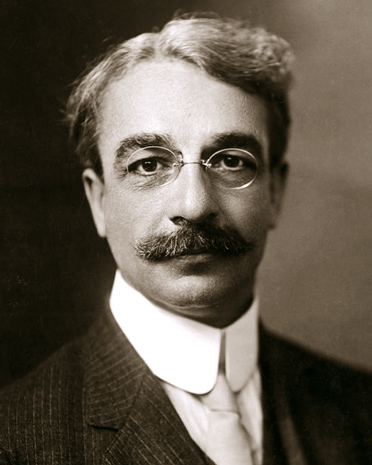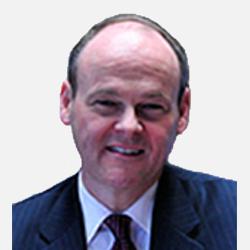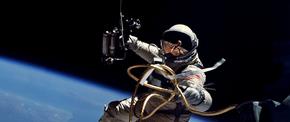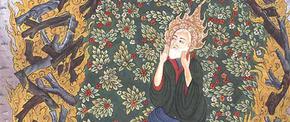The views expressed in our content reflect individual perspectives and do not represent the authoritative views of the Baha'i Faith.
During the course of his travels in the West Abdu’l-Baha gave many public talks in churches, synagogues, mosques, universities, societies for specific social causes, conferences and conventions of various kinds, charitable institutions, hotels, private residences, and many other venues. He gave numerous newspaper and magazine interviews, and became well-known in the process. His comings and goings brought him into contact with some of the leading figures of the time, such as Andrew Carnegie, Alexander Graham Bell, Admiral Peary, and Theodore Roosevelt.
The sheer physical demands of such an undertaking would have proved daunting, if not impossible, to a young person in the prime of life. But Abdu’l-Baha was at this time in the evening of his life, his constitution taxed by many years of hardship. It is worth remembering that he had spent virtually his entire life as a prisoner. Before his trip to the West, he had never given a public talk even to people in his own part of the world, let alone to Westerners.
In spite of these seeming disadvantages, Abdu’l-Baha moved with ease through every circle of society, spreading the news of his Father’s new Faith and describing its essential teachings. In most cases he was warmly welcomed, and, due to his breadth of knowledge and powerful spiritual qualities, created deep and lasting impressions upon those who met him.
One eyewitness, Howard Colby Ives, was a Unitarian minister who had many opportunities to observe Abdu’l-Baha’s interactions with the public. Eventually Ives became a Baha’i. Here is his description of one episode in 1912:
Howard Colby Ives
Dublin [New Hampshire] is a beautiful mountain Summer resort where gathers each year a colony of wealthy intellectuals from Washington, D.C. and from various large centers. Abdu’l-Baha’s stay in that place for a period of three weeks offers another evidence of His unique power of adaptation to every environment; His dominant humility in every group, which, while seeming to follow He really led, and His manifest all-embracing knowledge.
…in this environment He not only mingled with these highest products of wealth and culture with no slightest embarrassment to them or to Him, but He literally outshone them in their chosen field.
No matter what subject was brought up He was perfectly at home in its discussion, yet always with an undercurrent of modesty and loving consideration for the opinions of others. I have before spoken of His unfailing courtesy. . . . He “saw the Face of His Heavenly Father in every face” and reverenced the soul behind it. How could one be discourteous if such an attitude was held towards everyone! – Howard Colby Ives, Portals to Freedom, pp. 115-116.
Another account was written by Sara Louisa, Lady Blomfield, after Abdu’l-Baha visited her home in London in 1911:
A silence as of love and awe overcame us, as we looked at Him; the gracious figure, clothed in a simple, white garment . . . His hair and short beard were of that snowy whiteness which had once been black; His eyes were large, blue-grey with long, black lashes and well-marked eyebrows; His face was a beautiful oval with warm, ivory-coloured skin, a straight, finely-modelled nose, and firm, kind mouth. These are merely the outside details by which an attempt is made to convey an idea of His arresting personality.
His figure was of such perfect symmetry, and so full of dignity and grace, that the first impression was that of considerable height. He seemed an incarnation of loving understanding, of compassion and power, of wisdom and authority, of strength, and of a buoyant youthfulness, which somehow defied the burden of His years; and such years!
One saw, as in a clear vision, that He had so wrought all good and mercy that the inner grace of Him had grown greater than all outer sign, and the radiance of this inner glory shone in every glance, and word, and movement as He came with hands outstretched. – Lady Blomfield, The Chosen Highway, pp. 149-150.
Let it not be imagined, however, that all observers were well-disposed towards the Baha’i Faith. One clergyman, Reverend James T. Bixby, wrote a hostile article entitled “What is Behaism?” for the North American Review while Abdu’l-Baha toured North America. Yet this individual, although deeply disturbed at the appearance of a new religion, could not help but express personal admiration for Abdu’l-Baha himself:
In the brief personal acquaintance with the head of the new faith, with which I have been honored, Abbas has impressed me as a man of great mental ability, tact, and persuasive power; friendly in disposition, affable in his manners, and amiable and progressive in his spirit. He is wisely putting the emphasis in the Behai community more and more on those great principles of international fellowship and friendly relations between diverse faiths and races that best realize the essence of the Christian spirit. Moreover, he has practically exemplified these principles in his own pacific conduct and charitable activities. The description that visitors to Akka have given of his daily personal benefactions is, indeed, beautiful and impressive. – Reverend James T. Bixby, quoted in Babi and Baha’i Religions, 1844-1944, p. 329.
These countless testimonies to the powerful impact of Abdu’l-Baha’s presence only served to reinforce the new Baha’i message of peace, unity and oneness:
All the divine Manifestations have proclaimed the oneness of God and the unity of mankind. They have taught that men should love and mutually help each other in order that they might progress. Now if this conception of religion be true, its essential principle is the oneness of humanity. The fundamental truth of the Manifestations is peace. This underlies all religion, all justice. The divine purpose is that men should live in unity, concord and agreement and should love one another. Consider the virtues of the human world and realize that the oneness of humanity is the primary foundation of them all. Read the Gospel and the other Holy Books. You will find their fundamentals are one and the same. Therefore, unity is the essential truth of religion and, when so understood, embraces all the virtues of the human world. – Abdu’l-Baha, from his address at Columbia University in New York City on April 19. 1912, The Promulgation of Universal Peace, p. 31.


















Comments
Sign in or create an account
Continue with Facebookor